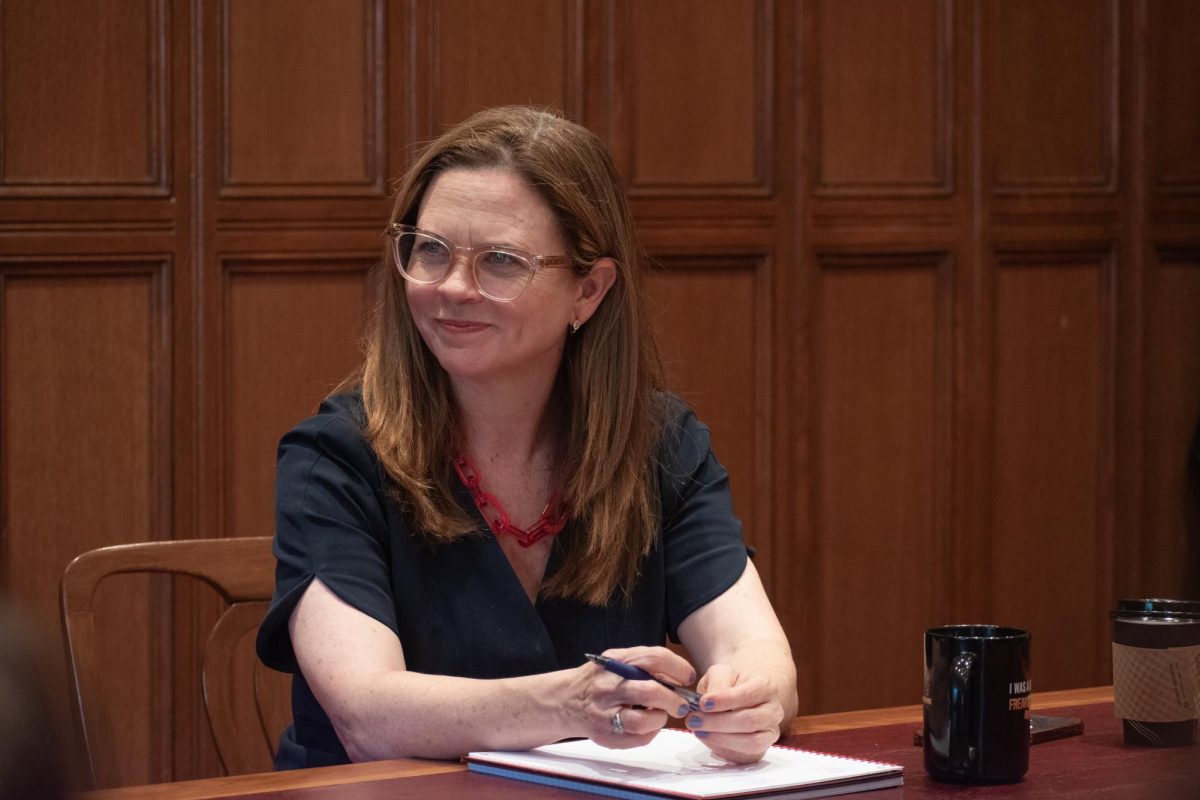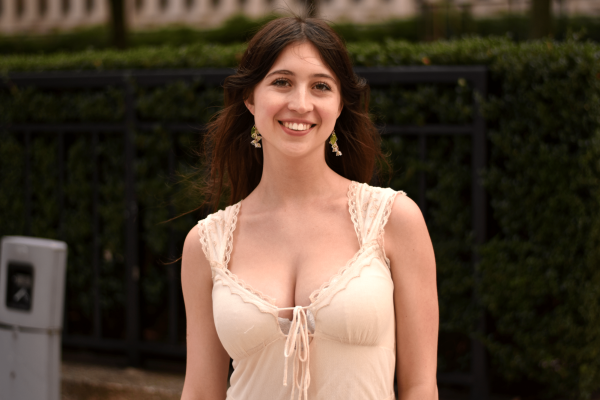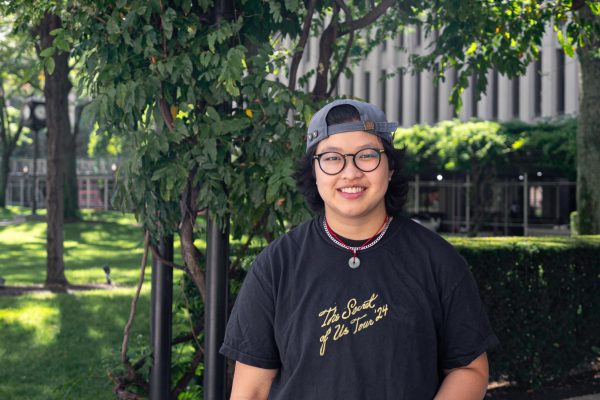University President Tania Tetlow met with the student press on Oct. 16 and discussed tuition costs, school rankings, Graduate Student Union protests and recent university changes like administrative restructuring and donations to science, technology, engineering and math (STEM) programs.
Last year, four Fordham students’ visas were revoked and later restored. Tetlow said that this year, Fordham’s visa application rate of success “was the same as last year, so that was a major achievement and not true at every institution.”
Tetlow attributed this success to a new task force of administrators and faculty, created this summer to help support international students in tandem with the pre-existing Office of International Services.
“We have seen a decline in applications, more at the graduate level than undergrad, from China and India, which were particularly discouraged at various times by the (federal) administration from coming here.” Tania Tetlow, university president
However, Tetlow said the university has seen a small decline in international graduate student applications from certain countries, a trend she worries may escalate next application cycle.
“We have seen a decline in applications, more at the graduate level than undergrad, from China and India, which were particularly discouraged at various times by the (federal) administration from coming here,” Tetlow said. “A lot of what happened last spring happened late in the admissions cycle, so I worry that there will be more opting out next year.”
Nationwide, there has been a 19% decrease in international student arrivals, according to data from the National Travel and Tourism Office.
Tetlow said that “what didn’t get nearly enough attention last summer were the efforts to cut back on students’ financial aid.” Fordham reached out to students, staff and alumni over the summer, asking them to contact Congress regarding this matter, which Tetlow said is “about making the American dream a reality.”
“We got a phenomenal response,” Tetlow said. “It is the most short-sighted move in the world to cut back on educational opportunity in this country … The more we chip away at that, the worse our country will do in a global economy, but also, we just squander talent in unimaginable ways.”
“We hold back as much of that money as we can to help scholarship more of the students who cannot afford to pay the actual increasing cost of their education.” Tania Telow, university president
Financial aid is a widespread concern for students following the university’s 4.65% tuition hike last semester. Tetlow said it is possible tuition will be raised again as inflationary costs continue to rise, as “providing the excellence you deserve at a price we hope you can afford and that is a more and more miserable process every year.”
“If costs are going up and the vast majority of the revenue of the university comes from tuition, the only way that we can avoid raising tuition is if we cut the quality or … how much we spend per student,” Tetlow said.
Tetlow added that financial aid is “the biggest priority in the budget” and “raising money for scholarships from our alumni remains one of our biggest fundraising priorities.” She also noted that Fordham faces an equity issue in distributing financial aid to students who need it most.
“We hold back as much of that money as we can to help scholarship more of the students who cannot afford to pay the actual increasing cost of their education,” Tetlow said. “What we are doing more of, this year especially, is to really think about how to be more generous in financial aid for returning students as much as we can, because the idea of losing any student over a couple of point increase in the bill is anathema to us.”
Fordham has steadily dropped in U.S. News and World Report rankings over the last few years, going from 72nd in 2022 to its current tie for 97th.
The tuition increase sparked frustration among students as Fordham has steadily dropped in U.S. News and World Report rankings over the last few years, going from 72nd in 2022 to its current tie for 97th. Tetlow responded to this and said that, in 2012, Fordham was ranked in the 50s out of 174 schools, putting it in the top 30th percentile, whereas now it is 97th out of 434 schools, or in the top 22nd percentile.
Tetlow said that, while admission rate is no longer part of the rankings, Fordham is focused on “getting the admission rate down” because “we do know that (selectivity is) something students look to as they’re choosing a school.”
Tetlow cited U.S. News’ recent shift in criteria toward outcomes and social mobility as the reason for the drop, which she said disproportionately impacted private universities as public universities receive more government subsidies. Private universities are also subsidized indirectly, primarily through tax deductions and other federal privileges.
“Public surged forward, privates dropped,” Tetlow said. “But our raw score stayed the same. So is it a change in the quality of Fordham? No. By definition, no.”
Of U.S. News’ criteria, Tetlow agreed on the importance of retention and graduation rate. Fordham’s 2025 to 26 Strategic Plan is “focused on being student-centered on academic excellence and quality, and that which ultimately will move the needle,” Tetlow said.
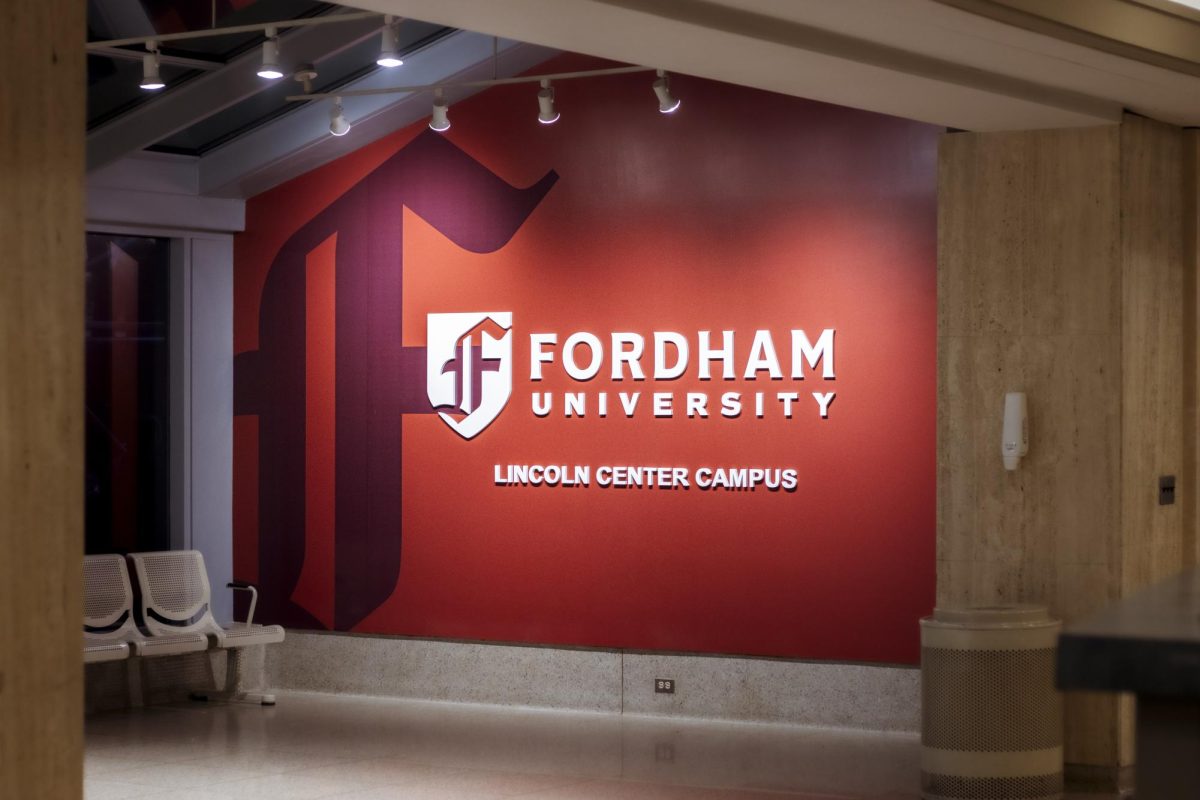
Part of this strategic vision includes Fordham’s rebranding and deepening investment in STEM following the $100 million donation for a new STEM building last semester, as well as the $1 million gift for artificial intelligence research this month.
The rebranding and new logo were met with mixed feedback from students, many of whom were unhappy about the change. Tetlow said the decision followed extensive market research and focus grouping showing that Gen Z is increasingly unaware of what Fordham’s Jesuit mission means.
She added that the rebranding hopes to show incoming students the “academic excellence and social justice and brilliant teaching” central to the cura personalis of a Jesuit education.
“Thus far, it’s really working. It’s very early in the application cycle, but we are way up on applications,” Tetlow said. “Changing the ‘F’ is the least of it. It was really about developing copy, a language to describe who we are in our Jesuit identity … but to translate it into the language of a younger generation in a way that will resonate with them.”
Fordham’s recent fall open house saw 1,500 students and their families, a 38% increase from the year prior, according to an email from the Office of Undergraduate Admission.
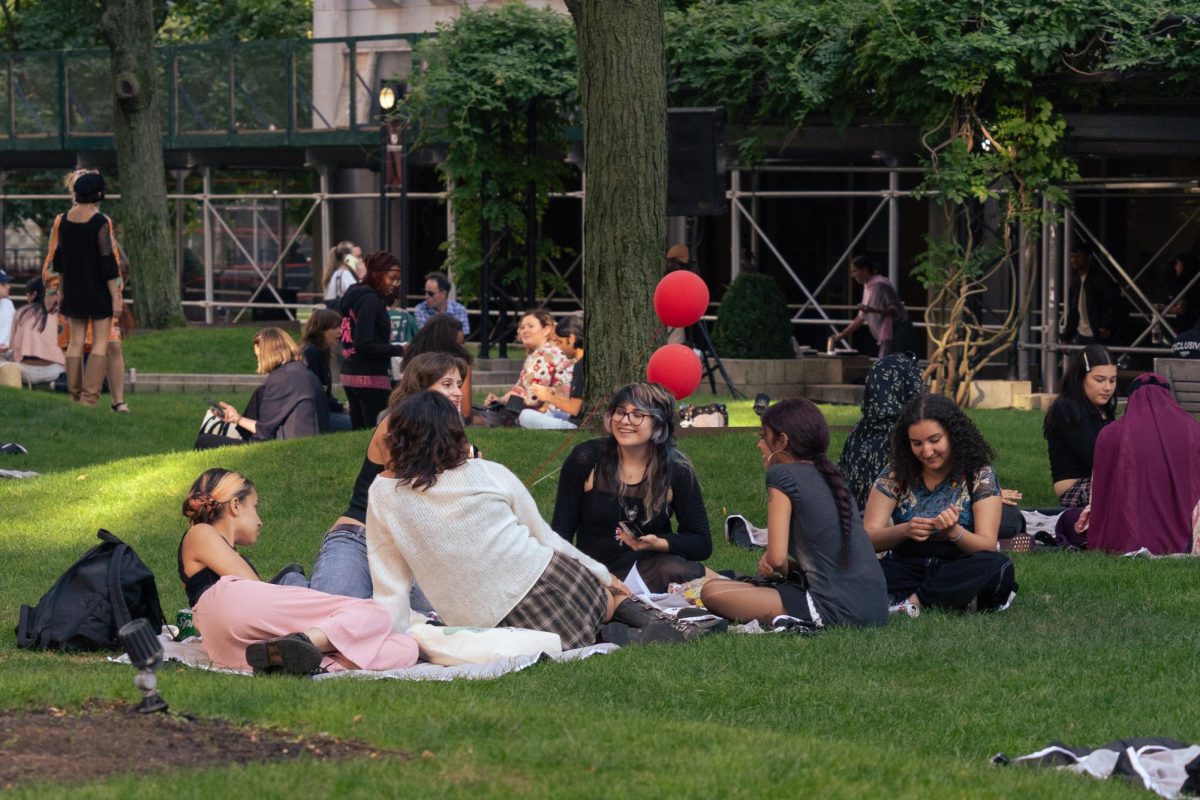
Regarding the STEM donation, Tetlow clarified that this is “not a pivot.” Rather, she said that the university has “fallen behind in our investment in STEM” and is prioritizing connecting “science and technology to our existing strengths,” which will help better prepare students for a changing job market.
“You guys face a rate of change that is unimaginable, so Fordham has to be quicker to help prepare you for that world,” Tetlow said. “A lot of the jobs that are most technical are going away very, very quickly … What employers will need is our graduates who have facility and technology … but also, who have the deeply human skills that we hope the software will never replace.”
Tetlow went on to address the administration’s position on the Fordham Graduate Student Workers (FGSW) rally last month, in response to a question from The Observer. FGSW claimed they received only one week’s pay on Aug. 8 (in contrast to the standard two-week pay cycles), were not notified of the expiration of their health insurance and that the university will change their compensation of Graduate Student Council (GSC) officers to treat their roles as service, not work. Previously, graduate student fees to Student Services had been used to pay employee part-time salaries to GSC officers, which the university believes should no longer be the case.
The protest followed an updated contract agreement between Fordham and FGSW in spring 2024 after two years of negotiations.
Molly Crawford, a chief steward with FGSW, described the situation as a series of administrative errors with “pretty serious consequences … (that) speak to a larger culture” that does not sufficiently value graduate student workers as important members of the Fordham community.
However, Crawford clarified that FGSW has “spoken with the administration and we’ve gotten confirmation that it (miscommunication around pay cycles and healthcare) won’t happen again,” during FGSW’s regular committee meetings with administration.
“Undergraduate student fees go to support student organizations and clubs and operating expenses, and they’re part of the support of club sports … We don’t use undergraduate student fees to pay USG.” Tania Tetlow, university president
Tetlow said that Fordham disagrees with the previous system of paying GSC officers as employees, despite a stipulation of compensation in GSC’s constitution.
“The fact that students have created a document in the past that maybe doesn’t align with normal best practices or our own sense of ethics about the use of student money, that doesn’t bind us going forward,” Tetlow said. “Ultimately, we’re trying to protect graduate student fees that they’re used for the ways that students pay them.”
Crawford added that, “during the contract negotiations and into last academic year,” FGSW “understood those to be jobs covered by the union.”
Tetlow compared the situation to Fordham’s undergraduate United Student Government (USG) officers, who are not paid using undergraduate student fees.
“Undergraduate student fees go to support student organizations and clubs and operating expenses, and they’re part of the support of club sports … We don’t use undergraduate student fees to pay USG,” Tetlow said.
Tetlow also said the administration would like to foster more Fordham traditions.
Tetlow said that the university is not in contract negotiations, but that the Graduate School of Arts and Sciences and FGSW are in talks regarding GSC compensation.
In discussing broader administrative changes, Tetlow touched on inter-campus unity, noting that the consolidation of the School of Arts and Sciences is the “most important strategy to help us in the goal of ‘One Fordham.’” This restructuring was marked by the introduction of Dean of Arts and Sciences Jessica Lang last March, as opposed to the former model of four deans.
Tetlow also said the administration would like to foster more Fordham traditions toward this end, especially at the Lincoln Center campus, and has reached out to the United Student Government to brainstorm.
“The warmth of this community is unusually amazing … We want to find more reasons, whether it’s Ailey performances or the theater performances … What events could we have there that Rose Hill students would never want to miss?” Tetlow said. “And just generally, what events we could have at both campuses that create that sense of community, of joy, of fun.”
For the coming academic year, Tetlow looked forward to the continued growth of inter-campus unity and a warm, positive campus culture, which she said is already what makes the Fordham community so special.

